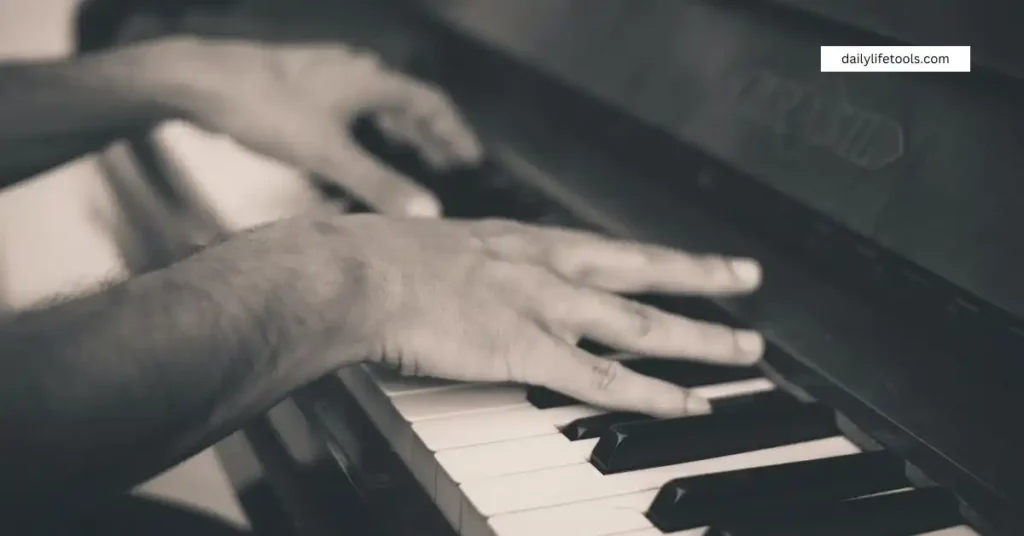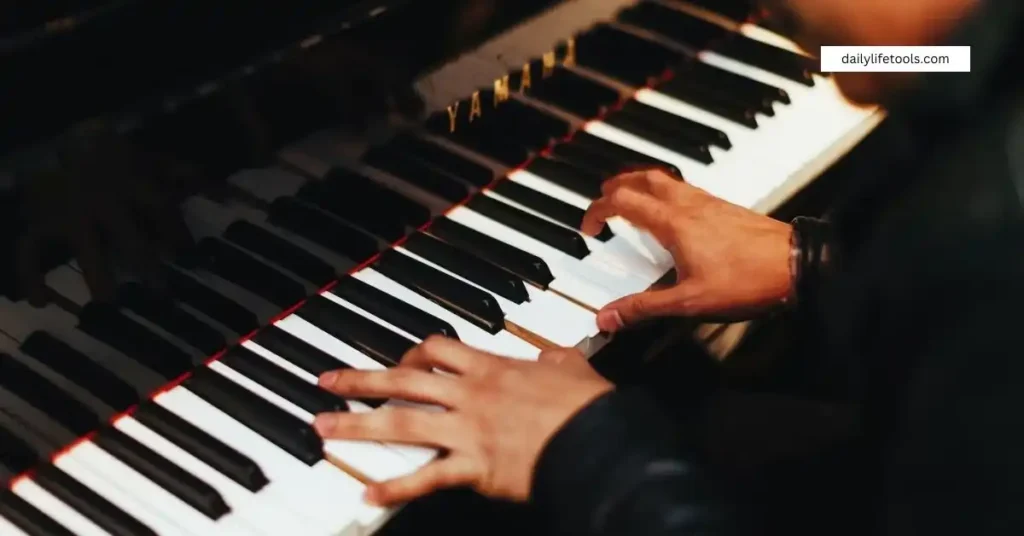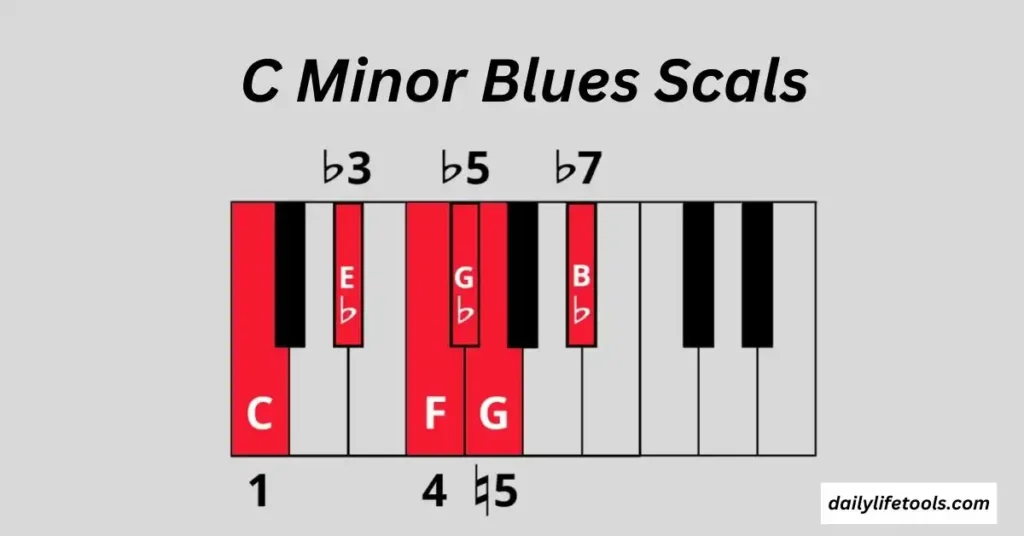Have you ever wondered about those mysterious black keys on a piano? They may seem intimidating at first, but fear not!
In this beginner’s guide, we’ll uncover the secrets behind the black keys and explore their significance in piano playing.
Whether you’re just starting your musical journey or curious to learn more, let’s dive into What Are the Black Keys on a Piano For? A Beginner’s Guide.
The black keys on the piano, the sharps, and the flats are essential for creating a wide range of sounds. They add complexity and richness, taking the musical possibilities beyond just the 52 white keys.
So, for beginners on the piano, it’s critical to understand how they work. When you incorporate both black and white keys, it brings depth and versatility to your music.
These keys aren’t just accessories; they’re integral to playing different scales, changing keys, and even exploring the blues scale.
Once you’ve mastered the black keys, you’ll expand your note range and open up a whole world of piano music, from classical to contemporary.
So, understanding what are the black keys on a piano for and how to use them is crucial if you want to become a proficient pianist.
Table of Contents
The Significance of Black Keys

Explaining the Role of Sharps and Flats: The black keys on a piano, also called sharps and flats, are super important in music composition.
They change the pitch of notes on the piano by a half step, giving it a cool and unique sound. Sharps (♯) make the rise slightly, while flats (♭) lower it.
It’s like adding extra awesomeness to music!
Importance of Black Keys in Music Composition

In music composition, what are the black keys on a piano for? The 36 black keys are more than just filling gaps between white keys. They open up a whole new world of possibilities!
They allow the creation of scales and modes that form the foundation of different genres. Take the pentatonic scale, for example, commonly used in blues and rock. It heavily relies on those black keys.
Not only that, black keys make vital changes and harmonic progressions easier, which are essential elements of musical composition.
So, understanding, what are the black keys on a piano for? and mastering black keys is crucial if you want to become a skilled musician.
Understanding Major and Minor Scales: The Role of Black Keys

In forming major and minor scales, black keys play an essential role.
Have you ever wondered about the role of black keys in forming major scales?
Major scales are created using a specific pattern of half steps and whole steps (H-W-W-W-W-W).
These steps can be taken on the black keys on a piano for the black and white keys.
In fact, 36 black keys often come into play to maintain this pattern. For example, in the G Major scale, we use F# instead of F to follow the required steps.
But wait, what are the black keys on a piano for? there’s more!
Black keys also have a significant impact on forming minor scales. Minor scales have unique patterns (W-H-W-W-W-W-W) that often require using black keys.
We don’t use any black keys in the A minor scale, but in the B minor scale, both F# and C# are included.
So, understanding the role of black keys allows musicians to play and grasp major and minor scales confidently. Pretty cool.
Familiarity with the Blues Scale

The Role of Black Keys in the Blues Scale
So, how important is the blues scale in blues music? It’s all about incorporating those black keys to create that soulful tonality.
In the key of C, you’ve got these six notes: C, E♭, F, F♯, G, and B♭. And you know what? Those black keys give the blues scale its dissonant quality, which is associated with the expressive nature of blues music.
Practicing Blues Music with Black Keys
If you’re into playing blues music on the modern piano, you must get familiar with those 36 black keys. Start by playing the blues scale and focusing on that transition between the white and black keys.
And why not try exploring some blues licks and riffs that heavily use those black keys? It’s a great way to create your bluesy sound.
With enough practice, using the black keys will become second nature in your blues piano playing.
Exploring Famous Compositions Incorporating Black Keys
One of the most extraordinary things about black keys is how they can change the vibe of a song. Like, check out Frederic Chopin’s ‘Prelude in D flat Major’ – also known as the ‘Raindrop Prelude’.
The way he uses those black keys creates this super moody melody that hits you in the feels. And it’s not just classical music that rocks the black keys.
Jazz pianist Bud Powell’s ‘Black Notes’ is a prime example of how those black keys bring depth and emotion to a tune.
Even in pop music, artists like Billy Joel show love for the black keys in songs like ‘Black Key Etude.’
So, if you want to take your music to the next level, studying these compositions can inspire you to use black keys to add complexity and emotion.
Conclusion: What are the Black Keys on a Piano For
To sum up, the black keys on a modern piano are essential for creating and performing music.
They’re not just some extra thing but add depth, emotion, and complexity to melodies.
They make it possible to have cool progressions, change keys, and create different scales and modes.
That is super important for shaping the sounds of different music genres.
Whether it’s the soulful blues, the beautiful classical music, or the catchy pop tunes, you’ll always find the black keys being used.
As you start your journey as a pianist, don’t be afraid to embrace these unique black keys. They might seem challenging at first, but remember, practice makes perfect.
So, keep exploring, experimenting, and learning. The world of musical possibilities that these black keys unlock is genuinely amazing.
Let this understanding guide you on your path of music discovery and creation.
And remember, every time you play a black key, you’re one step closer to becoming a skilled pianist.
Further Resources
- A Guide for Beginners Finding the Best Piano Keyboard Under $500 In-Depth Review
- Best Affordable Keyboard Piano: For Beginners in the USA
FAQs about the Significance of Black Keys in Music
What are the black keys on a piano for?
The black keys on a piano are also known as sharps and flats.
What is the role of black keys in music composition?
Black keys play a crucial role in changing the pitch of a note by a half step, adding complexity and richness to the sound.
How do black keys enhance musical possibilities?
By incorporating black and white keys, musicians can achieve depth and versatility, exploring different scales and genres.
Can you explain how black keys are used in music?
Sure! Black keys are essential for playing different scales, changing keys, and exploring genres like blues. They contribute to the soulful tonality of the blues scale.
How important is it to understand and master black keys for piano playing?
Understanding and mastering black keys is crucial for becoming a skilled pianist. They play a significant role in forming major and minor scales and unlocking a world of musical possibilities.



